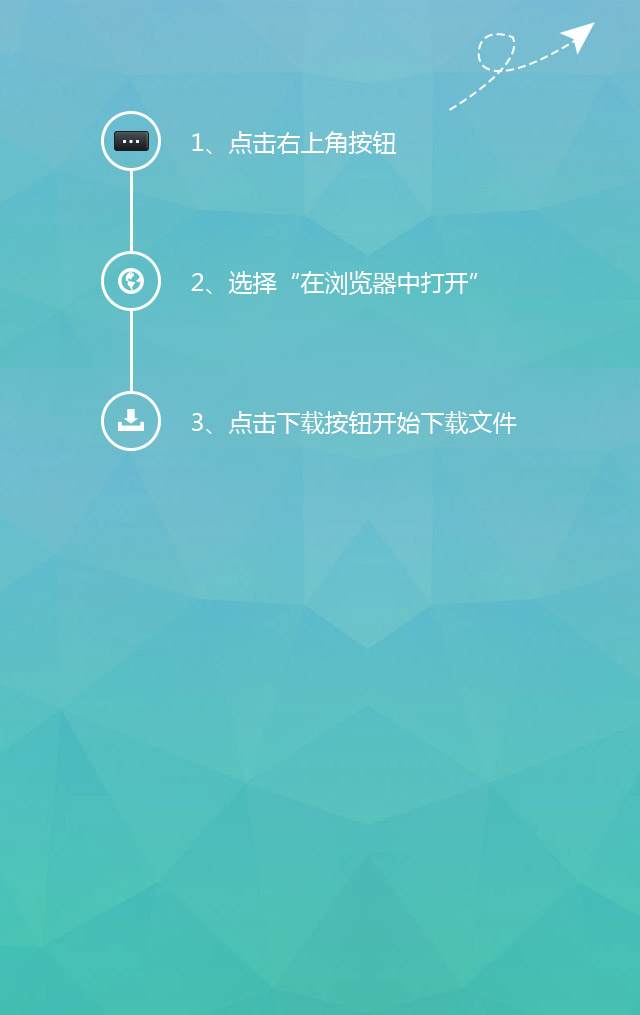第5课:钓鱼秘诀《走遍美国》
第5课:钓鱼秘诀《走遍美国》
ACT 1-1 “反正也不是一场重要的比赛。”
【故事梗概】
星期六早上,Grandpa在厨房里做早饭。Robbie进来了。他们谈起了这个周末的计划。原来Philip答应带Robbie去看棒球赛而又因为工作太忙而失约,Robbie只好用这场比赛反正并不重要来自我安慰。
Robbie: Hi, Grandpa.
Grandpa: Hi, Robbie.
Robbie: Can I help?
Grandpa: Yes, indeed. Hand me two eggs from the refrigerator, and I'll make you two fried eggs.
Robbie: How about some bacon?
Grandpa: I made enough for an army. You going to the baseball game today? It's a perfect day for it - a little cloudy but nice and warm.
Robbie: Dad and I were planning to go to the game, but he has to work today, and my friends don't want to go. It's not an important game, anyway.
Grandpa: Do you have any other plans for the day?
Robbie: I'll work on my computer. I have a new math program, and I want to learn how to use it.
Grandpa: Maybe you can teach me how to work on a computer someday.
Robbie: Anytime. It's really easy, but, like anything, you need to work at it, Grandpa.
【语言点精讲】
1. I made enough for an army.
我做的已经够一支军队吃的了。
enough for an army: 很多,远远超过需要。用这话表示东西已经够多了。
2. You going to the baseball game today?
"You going…?"是"Are you going…?"的一种在非正式场合使用的简略的说法,用以询问别人的计划。询问别人的计划,也可以说"Do you have any plan for the day?"
baseball game: 棒球赛。
3. It's a perfect day for it - a little cloudy but nice and warm.
今天可是(打棒球的)好天气——有一点多云,可是很温暖舒服。
a perfect day: 天气极好。cloudy: 阴,多云。
4. It's not an important game, anyway.
反正也不是一场重要的比赛。
anyway: 不管怎样,总之,反正。可以使用这个词来表示说话人认为某事并不是很重要的,常放在句首或句尾。
5. Maybe you can teach me how to work on a computer someday.
也许哪一天你能教我怎样用电脑。
Maybe you can…也许你能……,用这个短语用于询问别人是否可以做某事。
6. It's really easy, but, like anything, you need to work at it, Grandpa.
实际上很容易,可是得下功夫,爷爷,跟学一切东西一样。
work at it: 致力于……,钻研。
ACT 1-2 “也许你爸爸和我可以带你去钓鱼”
【故事梗概】
Grandpa建议第二天去钓鱼,Robbie欣然同意。随后,Grandpa试着同Philip提起这个话题。可是Philip太忙了,他急匆匆的吃过早饭就离开了。
Robbie: This bacon is great. I love crispy bacon.
Grandpa: Oh, what are you doing tomorrow?
Robbie: Nothing much.
Grandpa: Well, maybe your dad and I could take you fishing with us.
Robbie: I'd like that, but…
Grandpa: But what?
Robbie: But Dad is always so busy.
Grandpa: Well, can you come fishing with me tomorrow?
Robbie: Sure, I can.
Grandpa: Robbie says you can't take him to the game today.
Philip: I really feel bad about it, but they need me at the hospital today, in the children's ward.
Grandpa: I understand.
Philip: Maybe we can spend some time together next weekend.
Grandpa: Definitely. We should. You and Robbie and me. Remember our first fishing trip?
Philip: I sure do…. Well, I've got to run, Dad. See you later.
【语言点精讲】
1. What are you doing tomorrow?
明天你要做什么?这句话相当于"What will you do tomorrow? ",用来询问别人的计划。
现在进行时可以用来表示计划中未来某一具体时间预定要进行的事。
2. Nothing much.
没什么要紧的事。也可以说"Nothing important."
3. Well, maybe your dad and I could take you fishing with us."
嗯,也许你爸爸和我可以带你去钓鱼。
可以用"Maybe you could/can..." 来开始一个句子,用来建议某人做某事。
有如后面Grandpa对Philip说的"Maybe we can spend sometime together next weekend. "(也许下个周末我们可以一起聚聚。)
4. Well, can you come fishing with me tomorrow?
那么,你明天能和我一起去钓鱼吗?
在 come或go后面加上doing,表示“来(去)做一下某事”,是常见的句型。
5. I really feel bad about it.
我的确感到过意不去。
6. Remember our first fishing trip?
fishing trip: 外出钓鱼。钓鱼是美国最常见的休闲活动之一,但在很多州里,随便垂钓可能是非法的。一般都要购买钓鱼执照,并遵照各地的特殊规定。例如在若干长度以下的鱼,钓上之后须再放回水中,或对于钓竿的使用,有些特别的限制等。
7. I've got to run.
我得马上走了。这是一个非正式表达法。也可以说"I've got to go."
这里的"have got to…"是"have to…"的较口语化的说法。
ACT 1-3 “我只是在当个好爷爷而已。”
【故事梗概】
Philip从医院回来,看见Grandpa正在摆弄钓具。Grandpa想劝诱Philip也去钓鱼,用尽了心思,唤起了Philip对少年时光的追忆。Philip决定放下第二天的工作带Robbie去钓鱼。
Philip: Going fishing?
Grandpa: I'm thinking about it. So, how's work?
Philip: Oh, the usual problems.
Grandpa: You're working pretty hard these days.
Philip: I guess I am.
Grandpa: When did you last go fishing with Robbie?
Philip: I remember exactly. It was on his birthday, June second, two years ago. We didn't catch anything.
Grandpa: Remember our fishing trips?
Philip: Yes. I loved them.
Grandpa: Remember catching your first fish?
Philip: How can I forget? I fell out of the boat! We had some good times together.
Grandpa: Yes, we did. Maybe we should do it again.
Philip: How about tomorrow?
Grandpa: Don't you have to work?
Philip: My paper work will wait.
Grandpa: Oh, Robbie will be thrilled. I am, too, Son.
Philip: I want to spend more time with Robbie.
Grandpa: Tomorrow. It'll be like old times for you and me. And Robbie will love it.
Philip: Well, what's the weather going to be like?
Grandpa: Radio says sunny and mild.
Philip: Well, I'll tell Robbie. And thanks, Dad.
Grandpa: Don't thank me. I'm just being a grandfather.
【语言点精讲】
1. Going fishing?
要去钓鱼吗?动词go可与其他表示活动的动词的ing形式连用,表示“去做某事”。如go running(跑步),go swimming(去游泳),go dancing(去跳舞),go shopping(去购物)等。
2. I'm thinking about it.
think about: 考虑,尤指计划,看其是否可行。
3. Remember catching your first fish?
记得你头一次钓到一条鱼吗?remember doing something意为记得曾做某事,而remember to do something是记住要去做某件事。
4. I fell out of the boat!
注意Philip发音时"out of the boat"读成"outa the boat"。在口语中,of一词中的f常常不发音。
5. We had some good times together.
我们在一起度过一段美好的时光。
have some good times是“玩得好”的意思,与 have some fun 用法相近。
6. Maybe we should do it again.
Maybe (we) should… 也许(我们)应该……,这是用来提建议的另一种句法。
7. It'll be like old times.
过去的美好时光又要重现。当未来发生的某种事与过去的某个愉快的经历相似时可用这个句子。
8. What's the weather going to be like?
天气会是怎么样?这是一个询问未来天气情况的问句。
9. I'm just being a grandfather.
我只是在当个好爷爷而已。
这里用了动词 be的现在进行时,表示人们在说话时正在进行的短暂活动或行为,常含有各种感情色彩。如:
The boy is being naughty.那孩子在(故意)调皮捣蛋。
You're being patient with us.你(特意)对我们耐心。
You're being stubborn.你是在(成心)固执己见。
ACT 2-1 “为了要钓鱼,你得这么做。”
【故事梗概】
次日清早,在纽约州北部一个湖畔,Grandpa,Philip和Robbie在准备钓鱼。他们遇到了一个叫Albert的小男孩。他也在钓鱼,但是他只有一个人。
Robbie: This is really neat! When do we eat?
Philip: First, we have to catch some fish. In order to catch fish, you have to do this. Here we go. That's it. Then drop it into the water. All of this comes before eating. OK?
Robbie: How do you know so much about fishing?
Philip: Grandpa taught me. We spent a lot of time fishing together. Now, the important thing is to get the hook close to the fish. All right? Like this.
Robbie: I think I see some fish right under us, Dad.
Philip: Oh, not a chance!
Robbie: I just saw a big one!
Grandpa: Hi, there!
Albert: Hi.
Grandpa: What's your name?
Albert: Albert.
Grandpa: Are you all alone?
Albert: Yes, sir.
Grandpa: How old are you, Albert?
Albert: I'm ten.
Philip: Where's your father?
Albert: He's up there at the lodge.
Philip: Does he know you're here?
Albert: Yes, sir.
Philip: Ok, Robbie, maybe you should watch him. The water's pretty deep here.
Robbie: I'll watch him, Dad.
【语言点精讲】
1. In order to catch fish, you have to do this.
为了要钓鱼,你得这么做。in order to...为了,以便;想要。
2. Here we go.
在这里的意思是"We're starting now. ",现在我们可以开始。这是一种非正式的表达法。
3. We spent a lot of time fishing together.
我们曾多次一起钓鱼。spend + 时间 + doing something表示“花了多少时间做某事”。
4. Not a chance!
不可能。意思相当于"That's impossible. "
5. Hi, there!
你好。这是一种口语式打招呼方式。
6. Are you all alone?
就你一个人吗?all 在这里的意思是“完全,就”,常用以加强语气。
ACT 2-2 “鱼,鱼,给我送条鱼来。”
【故事梗概】
Robbie已经饿了,可是还没有钓到鱼,Grandpa教了他一个让鱼上钩的“钓鱼秘诀”。念了遍“谜决”之后,Robbie还真的钓到了一条鱼。Philip只钓上了一只靴子。
Robbie: What time is it?
Grandpa: It's almost lunchtime, and no fish yet.
Robbie: I can go up to the lodge for some hot dogs and drinks.
Philip: No way! We're here to catch our lunch.
Grandpa: To catch fish, you need the right magic.
Philip: That's right. I forgot! The right magic. Do it for Robbie, Dad.
Grandpa: You remember?
Philip: Sure. Come on.
Grandpa: Well, first, you have to turn your hat around like this. Then you close your eyes and say the magic words. Fish, fish, send me a fish.
Robbie: Fish, fish, send me a fish...I got one!
Grandpa: See, it works!
Robbie: It's a big one!
Philip: Well, it always worked for me, too.
Robbie: Grandpa, get the net, please!
Robbie: Dad, you got one, too!
Philip: You bet I have!
Grandpa: Easy, Philip, easy.
Robbie: Sorry, Dad.
Philip: Well, one more and I've got a pair of boots.
Robbie: You didn't say the magic words.
Grandpa: Robbie's right.
Philip: Yes, but you did, and we've got our lunch.
【语言点精讲】
1. No way!
不行,决不可以。相当于"Absolutely not; forget it."
2. Well, first, you have to turn your hat around like this. Then you close your eyes and say the magic words. Fish, fish, send me a fish.
首先,你得把帽子这样转过来。然后你闭上眼睛念咒语,鱼,鱼,给我送条鱼来。
First...then....,首先...然后....,用来描述顺序。
3. See, it works!
你瞧,很灵吧!work在这里是指“有效,起作用”。 随后Philip说的"Well, it always worked for me, too.",里面的work也是这个意思。
4. You bet I have!
当然了我也钓到一条!
You bet相当于"You can be sure. "(当然了)。
5. One more and I've got a pair of boots.
再钓一只我就有一双靴子了。这是Philip用来自我调侃的话。这里的and表示必然会发生的后果,又如:
Say that again and I'll hit you.(你再说一遍我就揍你。)
One wrong step and you fall down the cliff.(走错一步,你就会掉下悬崖。)
ACT 2-3 “醒醒,孩子。”
【故事梗概】
Philip开始烤Robbie钓上来的鱼,他把它烤得有点焦了。这时,他们听到了Albert呼救的声音。Albert掉到水里了。他们赶过去救人。
Philip: Let's build a fire and cook it! Come on, Albert, you can help us!
Albert: I want to stay here and fish.
Grandpa: All right, but be careful.
Robbie: Is it finished yet?
Philip: I think so. I hope you like your fish well done.
Grandpa: Burned, you mean.
Philip: Hey, I'm a doctor, not a chef.
Albert: Help! Help! I can't swim!
Robbie: Dad! Grandpa! He fell in!
Philip: Easy does it, Robbie. That a boy. That's it.
Grandpa: He's not breathing, Philip!
Philip: Robbie, run to the car! Bring a blanket and my medical bag.
Robbie: Yes, Dad.
Philip: Now, come on, son. Come on, son.
Grandpa: Breathe, Albert!
【语言点精讲】
1. Let's build a fire and cook it!
咱们生起火来把它做熟吧!
Let's... / Let us...,用来建议别人与自己一起做某事。
2. Is it finished yet?
做好了吗?用以询问食物是否已经准备好了。
3. Burned, you mean.
你的意思是说烧焦了。you mean可以用于纠正对方的话或者确定对方的意思和自己理解得是否相同。本情境中,Philip说"I hope you like your fish well done." 这里well done指煎(炸)得十分熟的(牛排、肉块等)。而实际上鱼已经有点烤焦了,于是Grandpa以开玩笑方式纠正他。
4. Easy does it.
别慌,慢点。与“take it easy, take things easy”同义。
5. That a boy. That's it.
两句的意义相同,都是“对了,就这样”的意思,是在夸奖别人干得好或干得对的时候说的。
6. Now, come on, son.
醒醒,孩子。son: 孩子。 Albert当然不是Philip的儿子,但是年纪大的人常常直接用son来称呼小男孩。
ACT 3-1 “咱们还回去钓鱼好吗?”
【故事梗概】
Philip救了Albert的命,Albert的父亲对他非常感谢。在Grandpa, Philip和Robbie准备返回去钓鱼的时候,Philip的BP呼机响了。
Robbie: Here's the bag. Will he be OK, Dad?
Philip: I hope so. That's it. That's the way. That's it. There. Oh, it's going to be all right. That's it. Wrap him in the blanket, Dad! That's it. That's it. It's all right, Albert. You're going to be OK.
Albert: I want my daddy!
Philip: We'll take you to him. Easy now. Easy does it. That's it.
Grandpa: Your dad is quite a guy.
Robbie: I know, Grandpa.
Grandpa: How is he, Philip?
Philip: He's asleep. He's going to be fine.
Father: How can I thank all of you?
Philip: Thank my son Robbie. He pulled him out of the water.
Father: I'm very grateful, Robbie.
Robbie: Dad saved him, not me.
Father: I'm so thankful to all of you.
Philip: So long.
Grandpa: He's a lucky boy. Well, what do you say we get back to our fishing?
Philip: That's a great idea. [His beeper sounds. ] Uh-oh. It's probably the hospital. I have to get to a phone. It probably means we can't stay.
Robbie: That's OK.
【语言点精讲】
1. Easy now. Easy does it.
别着急,沉住气。
2. Your dad is quite a guy.
你爸爸是个了不起的人。
"quite a guy"的意思相当于"a wonderful man",一个了不起的人。
3. How can I thank all of you?
叫我怎么谢你们几位才好?用以表达自己对别人的感激之情。
表达感谢的说法还有后面出现的"I'm very grateful."(我非常感激你。)以及"I'm so thankful to all of you."(我对你们都非常感谢。)
4. So long.
再见。与"bye, see you"同义,都为比较随便的告别语。
5. Well, what do you say we get back to our fishing?
怎么样,咱们还回去钓鱼好吗?
"What do you say we…?" (你说我们……怎么样?),可以理解为在say后面省了连词if,表示一种建议。此短语仅用于提非正式的建议。
6. Uh-oh.
英文中这种声音意味着有麻烦了。
7. I have to get to a phone.
我得找个地方打电话。get to: 赶快去。
ACT 3-2 “我想我今天扫你的兴了。”
【故事梗概】
Philip给医院回了电话,被告知他的病人发高烧,他必须马上赶回医院去。祖孙三人的钓鱼活动不得不提前结束。不愿空手回家的Robbie和Grandpa在超市买了特价的冻鱼。Ellen对他们这么早就回来了表示惊讶。
Philip: One of my patients has a high fever, and I have to go to the hospital. I'm sorry, Robbie. I guess I ruined your day.
Robbie: You didn't ruin my day, Dad. I understand. I really do.
Ellen: Why are you back so early?
Grandpa: Philip had to go back to the hospital.
Robbie: He had an emergency.
Ellen: Oh, that's too bad, Robbie. Did it spoil your fun?
Robbie: No, Mom. We had a great time.
Ellen: Well, did you do any fishing?
Robbie: Yeah, we caught lots of them. Look! They had a special on frozen fish down at the supermarket.
Ellen: Oh, you really had a bad day.
Grandpa: We had a good day. Robbie pulled a boy out of the water.
Robbie: And Dad saved his life. He's a terrific doctor, Mom.
Ellen: I know.
【语言点精讲】
1. One of my patients has a high fever, and I have to go to the hospital.
我的一位病人发高烧了,我得上医院去。
"have a high fever",发高烧。
2. I guess I ruined your day.
我想我今天扫你的兴了。
"ruin sb's day",扫某人的兴。也可以说"ruin sb's good time"或者"spoil one's fun"
3. He had an emergency.
他有急诊病人。"emergency",急事,紧急情况,急症(病人)。
4. They had a special on frozen fish down at the supermarket.
超级市场里特价出售冻鱼。
"have a special",有便宜货买(或卖)。"special"这里指特价商品。
ACT 3-3 “我们算是约好了吗?”
【故事梗概】
晚上,Philip从医院回来。Robbie表达了对父亲的敬慕。Philip决定改动工作日程,再带Robbie去钓鱼。Grandpa却“功成身退”,要让他们父子两个单独去玩一次。
Philip: Hi, Pop. Hi, Son.
Robbie: Hello, Dad.
Philip: What a day!
Grandpa: How about a cup of coffee, Son?
Philip: I'd love a cup of coffee.
Robbie: How was the patient?
Philip: She'll be fine.
Robbie: Was it serious?
Philip: No.
Robbie: Until today, I was never really interested in medicine.
Philip: Well, it's hard work.
Robbie: Now I know.
Philip: I had a good time today, Robbie.
Robbie: Me, too.
Philip: Why don't we do it again?
Robbie: Can we? When?
Philip: How about next Saturday?
Robbie: Won't you be busy?
Philip: I'm changing my schedule. Well, do we have a date?
Robbie: We sure do, Dad. Grandpa, can you come?
Grandpa: I have other plans, Robbie. But I think you two can have a good time together without me.
Philip: No, Dad, certainly not without the right magic.
【语言点精讲】
1. What a day!
这一天过的!好忙的一天啊!
"What a day!"是惊叹语,可以表示很好,也可以表示很不好。
2. I'd love a cup of coffee.
我想喝杯咖啡。
"I'd love (to have)…",我想来点…,这是在被人招待时常用的句子。
3. Until today, I was never really interested in medicine.
直到今天,我才对医学真正感兴趣。
"until",在...以前,到...为止。
"be interested in sth.",对...感兴趣。
4. Why don't we do it again?
咱们再去一回吧,好吗?
"Why don't we…? "(我们何不…?),用于提建议。
5. Well, do we have a date?
怎么样?我们算是约好了吗?
date这里指“预约的活动,约定”。
推荐
-

-

QQ空间
-

新浪微博
-

人人网
-

豆瓣

